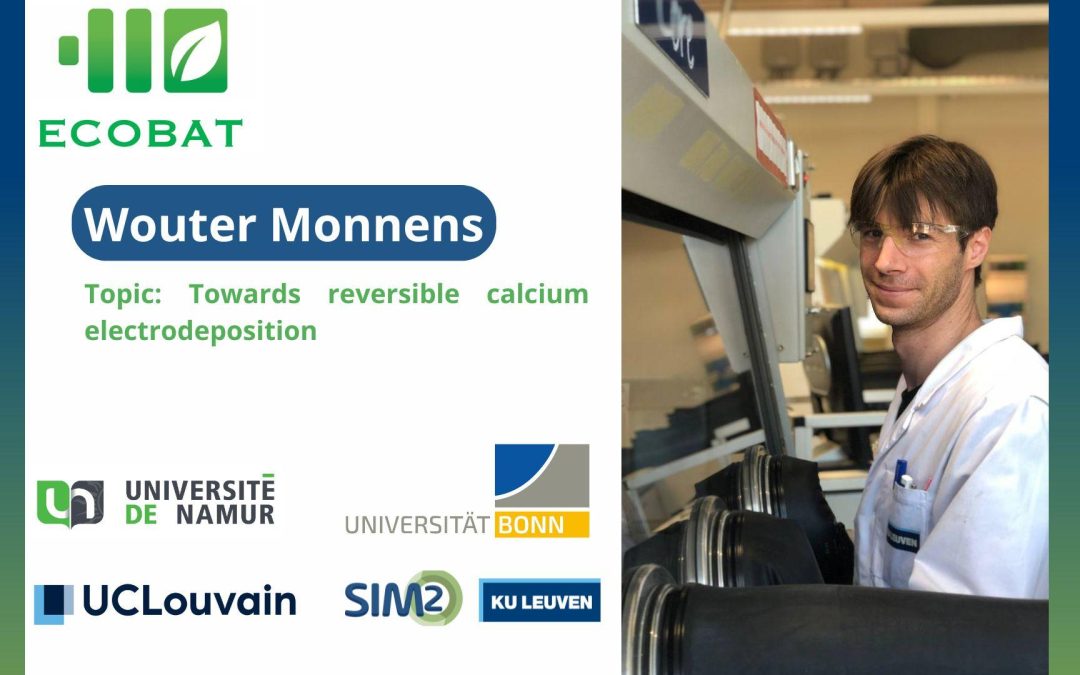Wouter was born in Belgium and pursued his undergraduate studies in chemistry at the University of Hasselt. He then completed his Master’s degree in Chemistry at KU Leuven. Following this, he embarked on a PhD under the supervision of Jan Fransaer and Koen Binnemans, conducting experiments within the Department of Materials Engineering (KU Leuven). Currently, he is engaged in postdoctoral research, focusing on the development of calcium metal batteries for ECOBAT project.
What are you working on within Ecobat?
I am working towards developing reversible calcium anodes for calcium-metal batteries and to gain a profound understanding of the (electro)chemical processes happening at the electrode’s surface.
What is the most interesting and the most challenging in this project?
Calcium-based batteries are still in the early stages of development. They are not very well understood yet. Hence, there is a lot to be uncovered on a fundamental level. Challenges that we have encountered are high degrees of ion pairing in the electrolytes and tendency of calcium metal to form a solid electrolyte interphase (SEI) that is blocking to divalent calcium cations, hampering plating/stripping.
How do you see the batteries of the future?
I believe in the future there will be a mix of different battery types, each tailored to specific applications. In the near future, I expect lithium-ion batteries to continue dominating the industry. Other types of aqueous batteries such redox flow and zinc-based ones will also find their own niche. Sodium-based batteries are just starting to be commercialized, and they too will play a role.
I recently read an interesting article in which Professor Philippe Vereecken discusses new technologies in the battery sector and how each technology finds its place in specific applications [read the article in Dutch here].
How do you stay motivated to do research?
I enjoy spending time in the lab. When experiments don't go as planned, I return to the drawing board and to try to come up with a new approach. I always make sure to reproduce my experiments, creating duplicates to ensure accuracy.
What do you think you can do better than other people?
I don’t think I stand out in anything particular, but my stubbornness sometimes helps. If something in the lab isn’t working, I’ll push to try to find a solution.

